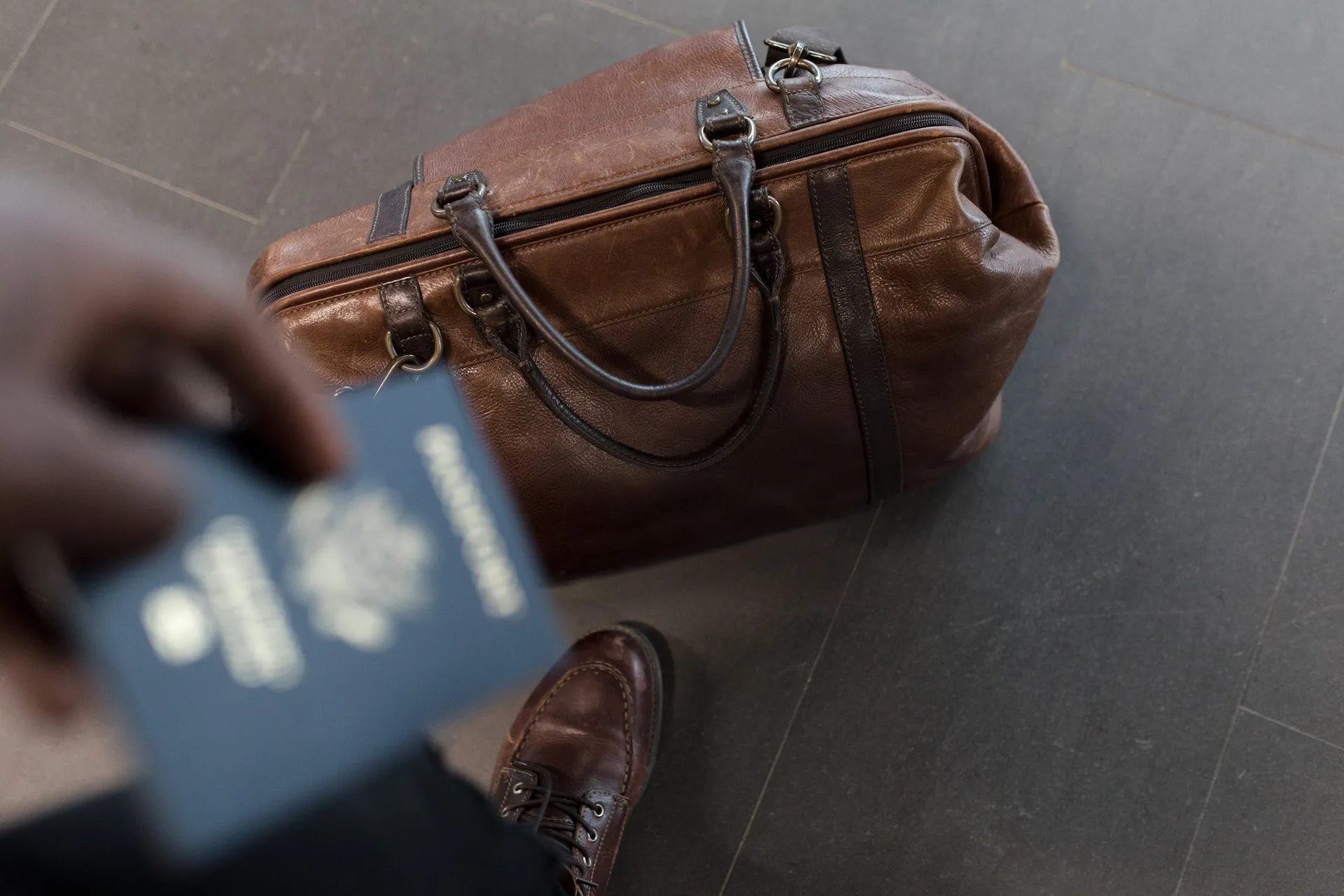Join Ship Visa Ireland
If you are a seafarer who intends on boarding a ship leaving from Ireland, you will be required to obtain a Join Ship via; part of the short-stay ‘C’ category of Irish visas.
For more information on how IAS can help you with your visa query, call our friendly team of advisors today on +44 (0)333 414 9244 or +353 (0) 61 518 025.
Read our 1001 reviews
Request a call back from our immigration experts
Benefits of Choosing IAS‘ Ireland Immigration Lawyers
When it comes to obtaining an Ireland visa or permit, IAS Ireland immigration lawyers are well-equipped to help you.
With IAS’ track record of successfully helping clients visit or immigrate to Ireland successfully, we can help you achieve your goal.
Our dedicated immigration lawyers provide our services through a comprehensive and personalised approach. With IAS, you enjoy:

Compassionate support from an experienced immigration lawyer dedicated to your success



Support in gathering supporting documents and completing a high-quality application.



Confidence that your case is being handled by an experienced team.



In-house document checks done by lawyers who are well-versed in Ireland immigration matters.
Services we Provide
What is a Join Ship Visa in Ireland?
A Join Ship Visa is a type of short-stay ‘C’ category Irish visa. The visa allows individuals to travel to Ireland to work as a seafarer on a designated ship which is due to depart from the country.
The Visa will allow the specified seafarer to travel to Ireland only. This type of visa does not permit the holder to stay in Ireland, work any job other (whether it be paid or unpaid), or, access public services; such as healthcare.
If you require assistance in acquiring an Irish visa, Immigration Advice Service can offer you a tailored advice package to ensure a smooth and stress free visa application process. Call our friendly team of advisors today on +44 (0)333 414 9244 for a chat.


When you need an Ireland Join Ship visa?
You will need to apply for an Ireland Join Ship visa if you are a seafarer and the following scenarios apply to you:
- A seafarer traveling to join a ship that is departing from Ireland within 24 hours of your entry date
- A holder of a seafarers identity documents- the documents must have been issued in a country that has not ratified the International Labour Organisation’s (ILO) Conventions on Seafarers’ Identity Documents
- You intend to travel to Ireland using a passport or other travel document from a country that is listed as a visa required country


Documents required for Irish Join Ship Visa
To gain an Irish visa, you must adhere to the strict documents required. It is paramount that the applicant provides all of the documents specified within 30 days of registering their application. The application will not be processed for consideration until the documents are submitted and a visa application fee is paid.
The documents required are as follows:
- Application summary sheet
- Application Letter
- Letter from your employer (shipping company)
- Accommodation plan
- Proof of travel or medical insurance
- Proof of payment of fees (if applicable)
- A valid passport- you are also required to provide evidence of previous passports
- Seafarer Identity document
- Passport photographs
- Finance plan
- Visa refusals (if you have ever been refused a visa for any reason)
Only hard copies of documents will be accepted. These must be original documents with no photocopies.
If they aren’t already, the documents will need to be translated into either English or Irish before they are submitted to the embassy for inspection. You must provide both the original documents.
You can find more specific information on the specific documents required below.
Application Letter for Irish Join Ship Visa
Those wishing to acquire an Irish visa must submit an application letter as part of their visa application. The letter should include the following details about the applicants applying:
- Full name and home address
- Reasons for wishing to enter Ireland
- Planned dates for arrival and departure
- Full names and home addresses of any family member who currently lives in Ireland
- A signature and date on the end of the letter
The application letter must also include a commitment from the applicant stating that the willy obey the full conditions of the Irish visa, leave Ireland before the visa issued is due to expire and they will not attempt to rely on Irish public funding.
Letter from your employer (shipping company)
To accompany the visa application, the applicant must obtain a letter from their employer- in this instance, the shipping company. The letter should include these details:
- Your job onboard the ship- your job title and main duties
- Details of the length of employment by the company in question
- The name of the ship to be joined in Ireland
- Planned arrival date to Ireland
- The name of the harbour in which the ship will be joined
- A planned schedule of the ship (inclusive of the planned route and docking periods)
- Contact details of the employer/shipping organisation
Accommodation plan
You must be able to detail your full accommodation plan to the Irish embassy before any decision can be made on your Irish visa status. This should include a full description of every place you will stay whilst in Ireland, including the dates you intend to stay at each place. For example, you may be planning to stay in a hotel during your time there.
If the plan is to go directly to the ship you will join and stay there, you must note this on your application letter clearly.
Evidence of accommodation plans can include printed booking confirmations from a hotel, hostel, B&B, or Air BnB. These confirmations must show the intended date of arrival and departure.
For those who may be hosted by a person in their own home, the host will need to provide a letter containing the following information:
- Full name of the host
- The home address in Ireland
- Written confirmation from the host saying that you were invited to stay inside their property
- The intended dates of stay and departure from the hosts’ property
Finance plan
You must be able to show authorities that you have enough money to enter Ireland and support yourself fully, without the use of Irish public funding.
There is no minimum or maximum amount of funds for the applicants applying, but you must ensure you have enough money to live off. A decision on your visa will be made based on your personal circumstances.
Proof of finances can come from a recent bank statement, however, it is essential that it shows the following details:
- It must be a certified bank statement from your back officially or printed online.
- Your full name and address are fully visible
- Bank account number
- Bank account type- current account or savings account, for example
- Shows incoming and outgoing funds from the last 6 months
Bank statements must be submitted as original documents- no photocopies or screenshots will be accepted.
If there appears to be evidence of large sums of money entering and leaving your account, a full written explanation of each transaction must be provided.
Past Visa refusals
As part of the visa application, it is the duty of the main applicant to disclose if they have been refused entry on a visa to any other country, including Ireland.
You must include the details of each visa you have been refused, with a written explanation as to why this occurred. The original decision letter stating the refusal must also be submitted in conjunction to the visa application.
Failure to disclose any past refused visas will mean that your Irish visa application will be refused.
Cost of a short-stay ‘C’ visa
Below are the specified fees required to apply for a short-stay ‘C’ visa:
- Single entry (Short-stay ‘C’ visa) €60
- Multiple entry visas (Short-stay ‘C’ visa) €100
If your application is withdrawn or refused, your application fee will not be refunded to you. The fee covers the cost of application processing and administration fees.
Applying for an Irish join ship visa
The visa application process can seem lengthy and daunting, but it is essential to get it right to give your request for an Irish visa the best possible chance of acceptance.
You can fill out an online application to register your interest in a visa. You will be prompted to pay the specified visa application fee at this point also. It is the responsibility of the applicant to ensure that all of the requested documents are sent to the Irish embassy promptly, with the correct payment for package size. Your application will not be processed until you have met the requirements for supporting documentation.
During processing, your application will be checked for summary sheets, dates, signatures, and, proof of payment.
It is not unusual to be contacted by officials for authentication or verification during the application process, so it is essential that up-to-date contact information is provided on the visa application.
In some instances, the applicant may be invited to attend a visa application centre to provide some biometric information- which consists of photographs and fingerprints.
Irish visa decisions
Irish visa processing times depend on when your application was submitted. All applications are processed in the order they are received. Visa processing may vary between visa office locations- it can also be useful to note any public holiday periods at the time of your application.
Typically, short-stay ‘C’ visa applicants can expect a decision within 8 weeks of the date your documents are received.
Your application can be delayed if some documents are missing or something needs verifying.
After processing and a final decision is made, your original documents will be returned to you by post or via arranged collection from the Irish embassy or Irish visas office.
Appeal a refused visa application
If for any reason your Irish visa application is refused, you will receive confirmation in writing with a full explanation for the refusal.
You can appeal the refusal with no cost to yourself, however, an appeal must be made within two months from the date you got the letter of refusal.
To appeal your refusal from authorities, the following protocol must be adhered to:
- You must write a letter of appeal with a detailed explanation of why you would like to contest the refusal and why you should be granted entry on an Irish visa. The letter must include your visa application transaction number, full name, address and email address
- Pull together any supporting documents that you believe could help in conjunction with your appeal application (these must be original documents and not photocopies)
- Your passport, but only if your refusal letter states you should in the occasion of an appeal
- Put all your documents and letter of refusal in a suitable envelope and mail them to the address stated on the original refusal letter
Preparing to travel to Ireland
When you are granted your Irish visa, it will permit you to travel to Ireland, but it does not give you permission to enter Ireland with no authorisation. Border control can refuse somebody entry even if they have access to a valid visa.
You must be able to demonstrate a genuine reason to be entering Ireland to the immigration officer present at border control on your date of travel. You should bring the following documents with you:
- A valid passport
- Your Irish visa
- Copies of the documents used in your original application
If you are granted entry by the immigration officer, you will be issued with a landing stamp which will show that you are in Ireland on a Join Ship visa. Usually, the landing stamp will specify the time you are permitted in the country- on most occasions on a Join Ship visa, you must board the specified ship within 24 hours of entry.
Table of Contents
Table of Contents will appear here.Legal Disclaimer
The information provided is for general informational purposes only and does not constitute legal advice. While we make every effort to ensure accuracy, the law may change, and the information may not reflect the most current legal developments. No warranty is given regarding the accuracy or completeness of the information, and we do not accept liability in such cases. We recommend consulting with a qualified lawyer at Immigration Advice Service before making any decisions based on the content provided.
Frequently Asked Questions
If border control refused you to enter Ireland, then you will not be able to travel into Ireland. You must return to your home country immediately.
Being granted an Irish Visa does not always mean that you will be granted entry into the country by an immigration officer- you can be refused entry at any time if they do not feel that your reason to be in Ireland is valid.
It is important to have all of your documents to hand on your intended date of entry into Ireland- these will be checked when you reach border control.
You are unable to travel to Northern Ireland on an Irish visa that was issued to you by the Republic of Ireland. You will need to seek a visa that has been issued by the United Kingdom instead.
However, in the instance that you are a national of a country affiliated with the British-Irish visa scheme, you can enter UK territory with an Irish visa.
Those under the age of 18 years old wishing to come to Ireland on a Join Ship visa should have their application made by a parent or legal guardian. The process remains the same besides some guidelines in place to protect the safety the young person involved.
Applications for a minor must specify whether the child will travel alone or with adult.
If a parent is accompanying the child for their journey, the person named to accompany the child on the visa is required to remain with the child for the entirety of their journey. If they do not adhere to this, the child may not:
- board a ferry or aircraft to travel to Ireland
- be able to pass through border control to enter the country of Ireland
Your transit visa will permit you to enter Ireland for the time specified when your visa is granted. You may not work any other job than the one listed on your visa, whether it be paid or unpaid. Also, you may not access Irish public funding or Irish public healthcare services.
A short-stay visa will only allow the holder to stay in Ireland for a maximum of 90 day. If the person wishes to stay longer in the country, they must leave Ireland and return to their home country before their visa is due to expire.
Once you return home, you can file an application for a Long-stay ‘D’ visa, if you meet the eligibility requirements. This will allow the visa holder to stay in Ireland for upwards of 90 days at a time.
You must submit two passport photographs with your visa application in order to verify your identity. The photographs must fit the following guidelines:
- 2 x passport-sized, colour photograph of the visa applicant
- Sign and print your name on the back of each photograph
- Write your visa application transaction number from AVATS on the back of each photograph
Immigration Advice service are highly trained in all aspects of UK visa and Irish Visa services. If you’re looking for an immigration lawyer, our trained immigration experts are here to assist you with your work visa queries at any time instead.
Whether you are looking to submit an application for a short-stay ‘C’ visa or launch an appeal, Immigration Advice Service have the tools and knowledge to assist you in a successful transit visa claim.
For more information on how we can help, call our friendly team of advisors today on +44 (0)333 414 9244 or +353 (0) 61 518 025 for a no obligation chat.


What our clients are saying
How our UK Immigration Lawyers can help
At the Immigration Advice Service our lawyers specialise in a wide range of UK visas, nationality and asylum applications and have represented clients in various successful complex and high-profile cases.















